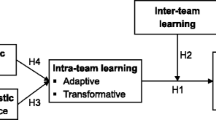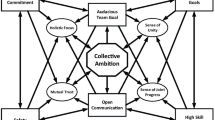Abstract
Introducing team projects into the engineering curriculum and teaching good teaming skills is one of the challenges for today’s engineering instructors. One of the challenging tasks is to form project team that can be successful. The question becomes: what information can be used to avoid bad teams. This article uses the experience of introducing real-world projects into the curriculum of the Department of Innovation in Chemical Technology of Kazan National Research Technological University to explore two key questions that might influence team success: 1) whether culture is a large factor in determining team success and 2) whether the diversity of styles of managing conflict influences success. In Kazan, there are two distinct cultures: Tatar which is predominantly Muslim and European Russian which is predominantly Orthodox. This situation offers an excellent opportunity to study these questions.
Student teams were formed around projects according to their area of interest. During the project students were given three surveys from www.itpmetrics.com: on their personality and on their individual style of conflict management and a final survey on assessing the health and performance of the team.
The approach in this article to analyze the results of these surveys to explore what factors had the most influence. All the students regardless of sex or culture showed a very high degree of integrative decision making. However, there are distinct differences in conflict management styles between the men and women of Tatar and Russian cultures. Having a high integrative style in the team leaders correlated to high team satisfaction. Surprisingly, the lack of contribution equity or the presence of personal conflict in the team had no to minimal influence on success.
Access this chapter
Tax calculation will be finalised at checkout
Purchases are for personal use only
Similar content being viewed by others
References
Schneider, M.: Google Spent 2 Years Studying 180 Teams. The Most Successful Ones Shared These 5 Traits (2017). https://www.inc.com/michael-schneider/google-thought-they-knew-how-to-create-the-perfect.html
Sultanova, D., Maliashova, A.: Development of the direction at the Kazan National Research Technological University. Innovation 12(254), 2–5 (2019)
Sultanova, D., Sanger, P.A., Maliashova, A.: Introducing real-world projects into a chemical technology curricula. In: Auer, M.E., Rüütmann, T. (eds.) ICL 2020. AISC, vol. 1328, pp. 362–370. Springer, Cham (2021). https://doi.org/10.1007/978-3-030-68198-2_33
O’Neill, T.A., McLarnon, M.J.W., Hoffart, G.C., Woodley, H.J.R., Allen, N.J.: The structure and function of team conflict state profiles. J. Manag. 44(2), 811–836 (2015). https://doi.org/10.1177/0149206315581662
Rahim, A., Bonoma, T.V.: Managing organizational conflict: a model for diagnosis and intervention. Psychol. Rep. 44(3), 1323–1344 (1979)
Sanger, P.: Integrating project management, product design with industry sponsored projects provides stimulating senior capstone experiences. Int. J. Eng. Pedagogy 1(2), 13 (2011)
Yarullin R.A.: Petrochemistry of Tatarstan Will Grow in Siberia, Time and Money, no. 2 (2012). https://www.e-vid.ru/index-m-192-p-63-article-39381.htm
Galloway, P.D.: The 21st-Century Engineer: A Proposal for Engineering Education Reform. ASCE, Reston (2008)
Barron, B.: Doing with understanding: lessons from research on problem- and project-based learning. J. Learn. Sci. 7, 271–311 (1998)
A Regional Summit: Meeting Western North Carolina’s Needs Through Higher Education. Western Carolina University (2003). http://www.wcu.edu/chancellor/presentations/regionalsummit_Feb2003.html. Accessed 21 Feb 2003
McVey, M.A., Luchies, C.W., Villicana, A.J.: Impact of high-performing teams on student learning. In: 2017 ASEE Annual Conference & Exposition, Columbus, Ohio (2017). https://doi.org/10.18260/1-2--28465
Heinricher, A.C., Quinn, P., Vaz, R.F., Rissmiller, K.J.: Long-term impacts of project-based learning in science and engineering. In: 2013 ASEE Annual Conference & Exposition, Atlanta, Georgia (2013). https://doi.org/10.18260/1-2--1988
Allen, N.J., O’Neill, T.A.: Team composition and performance: considering the project team challenge. In: Kelloway, E.K., Hobbs, B., Chiocchio, F. (Eds.) The Psychology and Management of Project Teams: An Interdisciplinary Perspective, pp. 301–328. Oxford University Press, Oxford (2015)
Sheridan, P.: Student Development of Team-Effectiveness Behaviours in Engineering Teams. Doctoral Dissertation University of Calgary, Calgary, Canada (2018)
Haslam, S.A., McGarty, C., Brown, P.M., Eggins, R.A., Morrison, B.E., Reynolds, K.J.: Inspecting the emperor’s clothes: evidence that random selection of leaders can enhance group performance. Group Dyn. 2, 168–184 (1998)
Ho, K., Tang, D.: Personality traits, teamwork competencies and academic performance among first-year engineering students. High. Educ. Skills Work-Based Learn. 11(2), 367–385 (2020). https://doi.org/10.1108/HESWBL-11-2019-0153
O’Neill, T., et al.: Introducing a scalable peer feedback system for learning teams. Assess. Eval. High. Educ. 44(6), 848–862 (2019)
Tasa, K., Sears, G.J., Schat, A.C.: Personality and teamwork behavior in context: the cross level moderating role of collective efficacy. J. Organ. Behav. 32(1), 65–85 (2011)
O’Neill, T.A., et al.: Constructive controversy and reflexivity training promotes effective conflict profiles and team functioning in student learning teams. Acad. Manag. Learn. Educ. 16(2), 257–276 (2017)
Rahim, M.A.: A measure of styles of handling interpersonal conflict. Acad. Manag. J. 26(2), 368–376 (1983)
Author information
Authors and Affiliations
Corresponding author
Editor information
Editors and Affiliations
Rights and permissions
Copyright information
© 2022 The Author(s), under exclusive license to Springer Nature Switzerland AG
About this paper
Cite this paper
Maliashova, A., Sultanova, D., Sanger, P.A. (2022). Characteristics of Team Dynamics Influencing Success in Engineering Student Teams. In: Auer, M.E., Hortsch, H., Michler, O., Köhler, T. (eds) Mobility for Smart Cities and Regional Development - Challenges for Higher Education. ICL 2021. Lecture Notes in Networks and Systems, vol 389. Springer, Cham. https://doi.org/10.1007/978-3-030-93904-5_2
Download citation
DOI: https://doi.org/10.1007/978-3-030-93904-5_2
Published:
Publisher Name: Springer, Cham
Print ISBN: 978-3-030-93903-8
Online ISBN: 978-3-030-93904-5
eBook Packages: Intelligent Technologies and RoboticsIntelligent Technologies and Robotics (R0)




